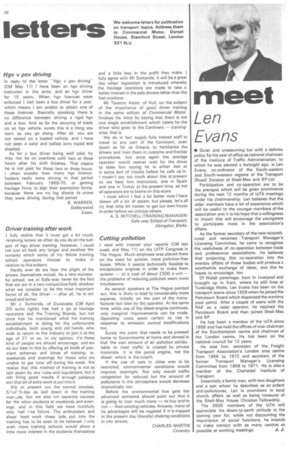Cutting pollution
Page 40

If you've noticed an error in this article please click here to report it so we can fix it.
I read with interest your reports (CM last week and May 11) on the UITP Congress in The Hague. Much emphasis was placed there on the need for quieter, more pollution-free buses. While it seems technically feasible to encapsulate engines in order to make them quieter — at a cost of about £500 a unit— the problems of reducing pollution seem more troublesome.
As several speakers at The Hague pointed out, this is likely to lead to considerably more expense, initially on the part of the manufacturer but later by the operator. At the same time, while use of the diesel engine continues, only marginal improvements can be made. Operating costs seem certain to rise in response to emission control modifications too.
Surely the point that needs to be pressed home to Governments at home and abroad is that the vast amount of air pollution attributable to road traffic is created by private motorists. It is the petrol engine, not the diesel, which is the culprit.
If the use of cars in cities was to be restricted, environmental conditions would improve overnight. Not only would traffic congestion be reduced but the amount of pollutants in the atmosphere would decrease dramatically too.
Before the environmental bus gets too advanced someone should point out that it is going to cost much more — to buy and to run than existing vehicles. Anyway, many of its advantages will be negated if it is trapped in the present day (literally) choking conditions in city streets.
CHARLES MARTIN Coventry
























































































































































